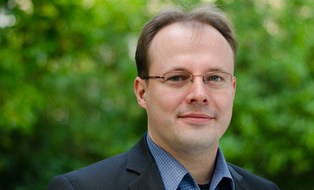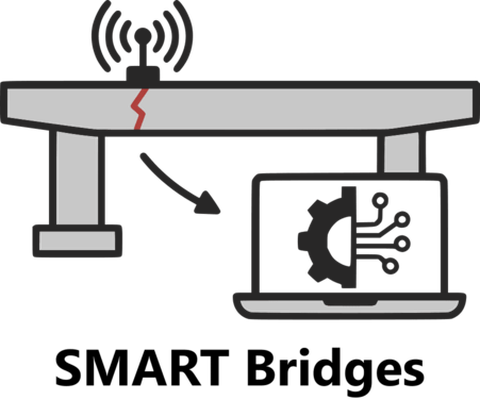SMART Bridges - Structural Monitoring for Advanced Resiliene in Transport Bridges

Fördergeber
Content
The aim of the project is to validate a low-cost automated bridge monitoring system. This monitoring can be applied over a very long period of time to enable early and planned countermeasures in the event of damage.
In the SMART Bridges project, a scaled bridge model is built and equipped with cost-effective measurement technology to capture structural changes under loads and artifically introduced damage. Of particular importance is the systematic variation of different damage locations and intensities. In addition, numerical simulations are carried out to create a comprehensive database of measurement and simulation data. This database is then used, through machine learning methods, to establish the relationship between altered system characteristics and actual damage cases.
Project Objectives
The objective is to validate an intelligent Structural Health Monitoring (SHM) system for bridges. This includes demonstrating that results obtained from real bridges can also be reproduced on the scaled bridge model. At the same time, the independence of the damage detection from the chosen excitation of the bridge model will be validated, ensuring the transferability of the concept to real bridge structures. In a further step, variations in damage type and intensity are analyzed. A data model then enables the correlation between introduced damage and the observed system changes. This validates the capability to differentiate between different types of damage using the concept.
Benefits
The project lays the foundation for cost-efficient, continous bridge monitoring and contributes to extending the service life of existing structures. Damage can be detected at an early stage, allowing planned countermeasures to be initiated, which helps reduce maintenance cost, CO2 emissions, and traffic disruptions. Small and medium sized enterprises benefit from access to patentable SHM systems, algorithms and new services in the field of monitoring. In the long term, the project contributes to a more sustainable and safer transport infrastructure.
Project Management
 © TU Dresden
© TU Dresden
Dr.-Ing. Peter Hantschke
Send encrypted email via the SecureMail portal (for TUD external users only).
Chair of Computational and Experimental Solid Mechanics
Visiting address:
MAR30, Zimmer 056 Marschnerstraße 30
01307 Dresden
Project Staff
 © TUD/NEFM
© TUD/NEFM
Dipl.-Ing. Jonas Wurche
Send encrypted email via the SecureMail portal (for TUD external users only).
Chair of Computational and Experimental Solid Mechanics

